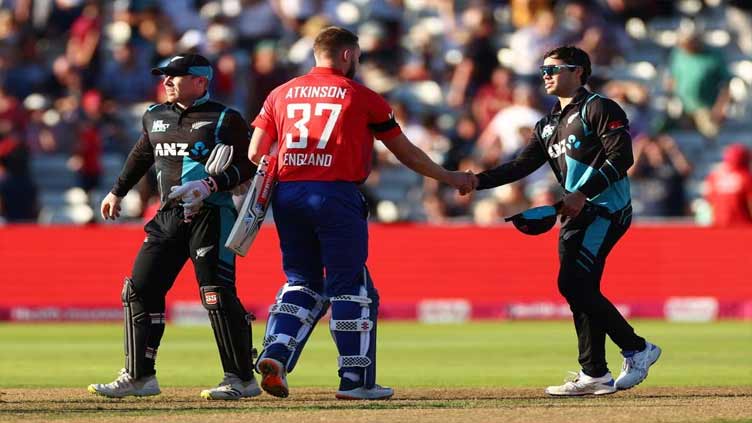Edgbaston's Go Green game points way to sustainable future

Cricket
Cricket is the most vulnerable field sport to a warming climate
LONDON (Reuters) - England hope that Sunday's T20 international against New Zealand can become the blueprint for a greener future for a sport threatened by the impact of climate change.
The third match in the series at Edgbaston was trumpeted as a Go Green game with a range of measures designed to reduce its carbon footprint and encourage biodiversity.
Renewable energy was used to power the 25,000-seater stadium for the day, red meat was banned from the hospitality areas and car parks were shut with fans arriving on shuttle buses.
A report published by The British Association for Sustainable Sport (BASIS) entitled "Hit For Six" warned that cricket is the most vulnerable field sport to a warming climate, be it because of floods or drought.
The England and Wales Cricket Board (ECB) has already adopted various measures while counties are getting involved with initiatives at grounds such as The Oval and Edgbaston while Lord's has been run off wind power since 2017.
Sunday's Go Green game was an exception rather than the rule and making every fixture sustainable is the challenge.
"Someone has to be the first," Iain James, the ECB's head of facilities services -- part of the governing body's sustainability team -- told the BBC.
"There is a footprint at cricket matches and Edgbaston are looking to address that. We need to see the learning before we can understand the rate we can all get there."
With cricket authorities keen to attract new audiences, the razzmatazz that accompanies T20 competitions like the ECB's Blast can look at odds with environmental messaging -- be it the erupting flames to greet a six, the 4 and 6 cards dished out to fans, which usually end up littering the streets, or fast food.
Edgbaston addressed one of those conundrums by making each 4 and 6 card out of paper containing wildflower seeds, designed to be planted in back gardens or on balconies.
Other measures on Sunday included sustainable food packaging wrapped in seaweed and electric mowers preparing the pitch.
A report will be compiled to highlight the exact carbon footprint of the fixture.
"Why wouldn't we do it?" Claire Daniel, Edgbaston's operations manager, told the BBC. "We want cricket to be around for a really long time and have to make this change."
New Zealand's all-rounder Rachin Ravindra said Sunday's game should become the standard for the sport.
"We see a lot of wastage at cricket grounds and I think the initiative that Edgbaston is coming up with is fantastic. I'm excited to see what comes of it," he said.
"It shows that if cricket can get it done then why not everyone else?"

